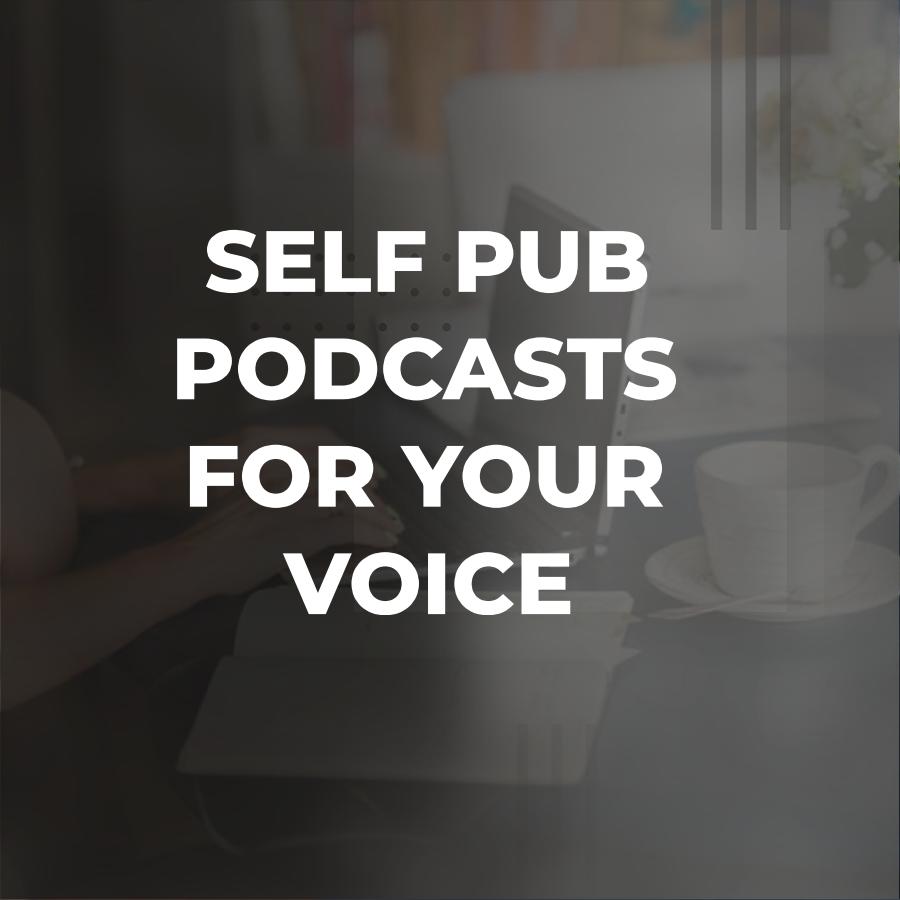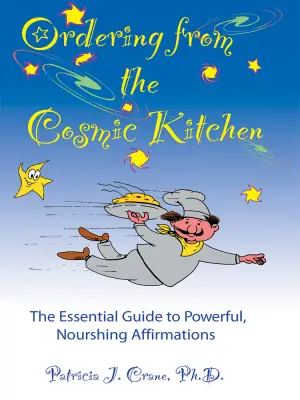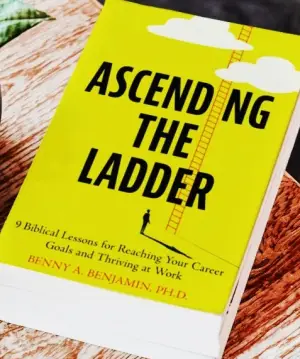Creating a podcast can feel like an inviting prospect for many aspiring creators. However, many encounter confusion and uncertainty when they try to publish their show. How do you get started? What equipment do you need? What platform should you use? These inquiries can quickly turn into obstacles that deter many would-be podcasters. The good news? Self-publishing your podcast is simpler than you might think. With proper guidance, you can dive in headfirst and start sharing your voice with the world in no time.
Table of Contents
Understanding the Basics of Podcasting
Before jumping into self-publishing a podcast, it’s crucial to understand the basic structure of a podcast. A podcast is essentially a series of spoken, audio episodes that focus on a specific topic or theme. They can range from educational shows to entertaining storytelling formats. What sets podcasts apart from other media is their accessibility; anyone with a smartphone and an internet connection can join the conversation.
Choosing Your Podcast Format
When self-publishing podcasts, one of the first decisions is the format. Will the approach focus on an interview, unfold as a narrative, bring together voices in a roundtable, or host the podcast in a solo format? Each format has its pros and cons.
For example, if you decide to select the interview approach, you may reach out to experts in your industry. This approach can lend credibility to your podcast. Imagine a health and wellness podcast discussing seasoned nutritionists or psychologists. The guests can offer insights that enrich the content and make it more compelling to listeners.
Conversely, a solo host format might be more straightforward for someone who prefers to share personal stories or expertise alone. Take a “tech tips” podcast, for instance, where the host ensures consistency in content delivery and builds a loyal audience.
Crafting Your Content
Content is king in the podcasting realm, and it’s essential to plan your episodes meticulously. You can start by generating a list of topics that excite you, and consider your audience’s interests.
Episode Planning
Imagine producing a podcast focused on classic literature. You might plan out episodes that cover different authors, significant works, and literary movements. For each episode, draft a rough outline that includes key points, potential quotes from the texts, and any guest appearances. This structured approach will help you remain focused and avoid wandering off-topic.
Scripting vs. Freeform Speaking
Some podcasters prefer scripting their episodes fully, while others thrive in a more freeform style. For example, when dealing with topics like finance, writing out each detail supports accuracy. A scripted podcast may minimize errors and provide listeners with clear, concise information.
On the other hand, a comedy or storytelling podcast may shine through impromptu dialogue and organic conversations. This informal approach can create a more engaging listening experience, fostering a connection with the audience.
Recording Your Podcast
Once you’ve got your content and format nailed down, it’s time to dig into the equipment needed for recording. The good news? You don’t need a hefty budget to start producing high-quality audio.
Essential Equipment
- Microphone: A quality microphone is crucial. USB microphones are often a good entry point for beginners. Models like the Audio-Technica ATR2100 or Blue Yeti are extremely popular for their balance of affordability and sound quality.
- Recording Software: Relax and trust that several dependable free applications are available. Audacity is an excellent choice for beginners, offering a user-friendly interface along with a range of editing options. For those who appreciate convenience, options like Descript provide audio capture, straightforward editing, and the ability to insert captions with ease.
- Headphones: Invest in good headphones to monitor your recordings and avoid audio feedback during recording sessions. A solid pair, such as the Audio-Technica ATH-M50x, can offer a peaceful recording experience.
Recording Environment
Your recording settings matter too. Aim for a quiet space with minimal echo. Carpets and soft furnishings can help absorb sound. A closet full of clothes can offer a makeshift sound booth, providing cushioning against reverberations.
Editing Your Podcast
Editing is where your podcast can truly shine. This step involves cutting dead air, adding music, or removing mistakes.
The Editing Process
Editing doesn’t have to be a daunting task. Start by importing your recording into your chosen software. Listen through the episode, and cut out any awkward pauses, filler words, or major hiccups. If there are longer segments that don’t serve the overall flow or goal of the episode, don’t hesitate to trim them down.
Consider adding background music or sound effects to elevate the listening experience. Websites such as Epidemic Sound or AudioJungle offer royalty-free music that you can use to enhance your podcast. Just ensure that the music complements your content and doesn’t overpower your voice.
Publishing Your Podcast
With your polished audio ready, it’s time to share your creation with the world. But where do you even start in self-publishing your podcast?
Choosing a Podcast Hosting Platform
Selecting a hosting platform is a vital step in self-publishing. Popular options include Libsyn, Podbean, and Anchor. Each offers different features and pricing structures.
For instance, Anchor is entirely free and provides an easy way to distribute your episodes to major platforms such as Spotify and Apple Podcasts. However, if you crave more advanced analytics and monetization options, you might prefer a paid host like Libsyn.
Creating RSS Feeds
Once hosted, each episode automatically generates an RSS feed. This feed is what allows platforms like Spotify and Apple Podcasts to draw your content. Remember to provide all necessary information in the feed, such as episode titles, descriptions, and cover art.
Promoting Your Podcast
Publishing your podcast is just the beginning. It’s essential to promote it to grow your audience.
Utilizing Social Media
Leverage social media platforms to reach potential listeners. Create dedicated pages for your podcast on Facebook, Instagram, or Twitter. Share behind-the-scenes content, audiograms, and promotional posts about upcoming episodes to increase engagement.
Consider joining podcasting groups on Facebook or subreddits focused on niches relevant to your podcast. Engaging with listeners and fellow creators can create a support network that keeps you motivated and informed.
Collaborating with Other Podcasters
Networking with other podcasters can introduce your show to a broader audience. Consider guest appearances or crossover episodes with other shows in your niche. If you’re hosting a tech tips podcast, reaching out to other tech enthusiasts could create exciting discussions that draw listeners from both shows.
Monitoring Feedback and Analytics
Once your podcast is launched and gaining traction, it’s critical to monitor listener feedback and analytics to fine-tune your content further.
Analyzing Listener Data
Your podcast host should provide analytics on how many people are listening, where they are from, and which episodes they enjoy most. Use this data to make informed decisions about future episodes. If an episode about a particular tech gadget received a lot of listens and shares, consider doing a series on that subject.
Engaging with Listener Feedback
Encourage your audience to leave reviews and comments. Feedback from the audience can highlight successes and call out mistakes. Read the reviews and consider hosting Q&A episodes to address listener queries. Engaging with your audience fosters a sense of community, which is crucial for long-term podcast success.
Monetizing Your Podcast
Once you’ve established a listener base, you might consider monetizing your podcast. There are several ways to do this.
Sponsored Content
As your audience grows, brands in your niche may want to partner with you for sponsorships.
For example, running a health-focused podcast can attract companies selling supplements or health products that may see value in reaching your audience.
Listener Donations
Platforms like Patreon allow fans to support your podcast through donations. In return, you can offer exclusive content, early episodes, or bonus interviews.
Affiliate Marketing
Another monetization strategy is through affiliate partnerships. Share links to products or services relevant to your content, and earn a commission on any sales made through those links. This approach works particularly well for podcasts that feature product reviews or recommendations.
Additional Information
Self-publishing podcasts can be a treasure trove of hidden gems that many creators overlook.
- Your First Episode Doesn’t Have to Be Perfect: Many podcasters feel pressured to launch with a flawless episode, yet most creators sharpen their skills with experience and gain confidence.
- Host Interviews Can Be Less Stressful: Instead of scripting an entire episode, consider inviting guests to participate on the show. Interviews can create dynamic content while lightening your workload.
- DIY Audio Editing Tools Exist: Professional editing can be pricey, but programs like Audacity and GarageBand offer free options for beginners to get a polished sound without breaking the bank.
- Transcriptions Can Boost Your Reach: Providing written transcripts of your episodes can improve accessibility and search engine optimization, making it easier for new listeners to discover your content.
- Play with Formats: Don’t feel tied to a single format. Embrace various styles such as storytelling, Q&As, or serialized content to keep your audience engaged and entertained.
- Use Social Media Wisely: Promote your podcast on multiple platforms, but avoid talking aimlessly into the emptiness. Engage with your listeners, ask questions, and build a community around your show.
- Podcast Cover Art Matters: Eye-catching cover art can make a significant difference in attracting new listeners. Invest some time (or money) in creating compelling visuals that stand out in directories.
- Leverage Audience Feedback: Actively solicit feedback from your listeners. This approach can provide valuable insights into what they enjoy and the improvements you can apply in your future episodes.
- Focus on Niche Topics: While broad subjects may have larger audiences, niche topics attract dedicated readers searching for something specific.
- Networking Can Skyrocket Your Growth: Connect with other podcasters so you can trade promotions, appear as guests, or swap new ideas. Collaborations can help expand your reach without extra effort.
- Don’t Forget About SEO: Just like blogs, podcasts can benefit from thoughtful keyword selection. Use relevant tags and descriptions to help potential listeners find your episodes more easily.
- Repurpose Your Content: Transform podcast episodes into blog posts, social media snippets, or even eBooks. This approach can maximize your creativity and reach while minimizing extra work.
- Experiment with Episode Length: The length of your episodes can affect listener retention. Shorter, snappier episodes might engage more listeners than longer, uninterrupted monologues.
- Invest in Quality Gear: Skip the extravagant gadgets. Use a reliable microphone and sturdy headphones to sharpen your audio and create a smoother sound for listeners.
- Consistency is Key: While spontaneity has its charm, maintaining a consistent release schedule helps build audience loyalty and sets listener expectations.
Frequently Asked Questions (FAQs) Related to Self Publishing Podcasts
Q. What is a self-publishing podcast?
A. A self-publishing podcast focuses on topics related to independently publishing books, sharing tips, strategies, and interviews with authors who have successfully navigated the self-publishing process.
Q. Do I need fancy equipment to start a self-publishing podcast?
A. Not necessarily. A decent microphone and headphones are a good start. You can get by with basic recording software, and as your podcast grows, you can invest in better equipment.
Q. How do I come up with topics for my self-publishing podcast?
A. Think about your own publishing experiences, common questions from new authors, or trends in the publishing industry. You can also interview fellow self-published authors to share their stories.
Q. How long should each episode of my podcast be?
A. Aim for 20 to 40 minutes per episode. This length is manageable for listeners and allows for in-depth discussions without losing interest.
Q. How can I promote my self-publishing podcast?
A. Utilize social media, guest appearances on other podcasts, and your own author website or blog. Engage with your audience through email newsletters to keep them updated on new episodes.
Q. Should I have guests on my podcast?
A. Having guests can add variety and provide fresh insights. Interviews can also help build relationships within the self-publishing community and draw in their audience.
Q. How often should I release new podcast episodes?
A. Consistency is key. Whether it’s weekly, bi-weekly, or monthly, stick to a schedule that works for you and keeps your audience engaged.
Q. What platform should I use to host my podcast?
A. Look for podcast hosting platforms like Anchor, Libsyn, or Podbean. They offer user-friendly interfaces and distribution to popular platforms like Apple Podcasts and Spotify.
Q. How do I monetize my self-publishing podcast?
A. You can explore sponsorships, listener support through platforms like Patreon, or selling merchandise. Consider offering premium content for a fee as well.
Q. What are some common mistakes to avoid when starting a podcast?
A. Avoid irregular publishing schedules, poor audio quality, and a lack of planning for episode content. A little preparation goes a long way toward creating a successful podcast!
Conclusion
Self-publishing a podcast is an exciting opportunity for anyone passionate about sharing their ideas and stories. With a variety of platforms and tools available, getting started has never been easier. Focus on creating engaging content, building your audience, and staying consistent. Remember, the journey may have its challenges, but the reward of connecting with your listeners is well worth the effort. So go ahead, hit record, and let your words reach others!







